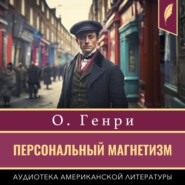По всем вопросам обращайтесь на: info@litportal.ru
(©) 2003-2024.
✖
The Four Million
Настройки чтения
Размер шрифта
Высота строк
Поля
"My ankle does hurt yet," admitted the girl, attempting a limping step. "I think I will accept your invitation, Mr. Chandler. You may call me – Miss Marian."
"Come then, Miss Marian," said the young architect, gaily, but with perfect courtesy; "you will not have far to walk. There is a very respectable and good restaurant in the next block. You will have to lean on my arm – so – and walk slowly. It is lonely dining all by one's self. I'm just a little bit glad that you slipped on the ice."
When the two were established at a well-appointed table, with a promising waiter hovering in attendance, Chandler began to experience the real joy that his regular outing always brought to him.
The restaurant was not so showy or pretentious as the one further down Broadway, which he always preferred, but it was nearly so. The tables were well filled with prosperous-looking diners, there was a good orchestra, playing softly enough to make conversation a possible pleasure, and the cuisine and service were beyond criticism. His companion, even in her cheap hat and dress, held herself with an air that added distinction to the natural beauty of her face and figure. And it is certain that she looked at Chandler, with his animated but self-possessed manner and his kindling and frank blue eyes, with something not far from admiration in her own charming face.
Then it was that the Madness of Manhattan, the frenzy of Fuss and Feathers, the Bacillus of Brag, the Provincial Plague of Pose seized upon Towers Chandler. He was on Broadway, surrounded by pomp and style, and there were eyes to look at him. On the stage of that comedy he had assumed to play the one-night part of a butterfly of fashion and an idler of means and taste. He was dressed for the part, and all his good angels had not the power to prevent him from acting it.
So he began to prate to Miss Marian of clubs, of teas, of golf and riding and kennels and cotillions and tours abroad and threw out hints of a yacht lying at Larchmont. He could see that she was vastly impressed by this vague talk, so he endorsed his pose by random insinuations concerning great wealth, and mentioned familiarly a few names that are handled reverently by the proletariat. It was Chandler's short little day, and he was wringing from it the best that could be had, as he saw it. And yet once or twice he saw the pure gold of this girl shine through the mist that his egotism had raised between him and all objects.
"This way of living that you speak of," she said, "sounds so futile and purposeless. Haven't you any work to do in the world that might interest you more?"
"My dear Miss Marian," he exclaimed – "work! Think of dressing every day for dinner, of making half a dozen calls in an afternoon – with a policeman at every corner ready to jump into your auto and take you to the station, if you get up any greater speed than a donkey cart's gait. We do-nothings are the hardest workers in the land."
The dinner was concluded, the waiter generously fed, and the two walked out to the corner where they had met. Miss Marian walked very well now; her limp was scarcely noticeable.
"Thank you for a nice time," she said, frankly. "I must run home now. I liked the dinner very much, Mr. Chandler."
He shook hands with her, smiling cordially, and said something about a game of bridge at his club. He watched her for a moment, walking rather rapidly eastward, and then he found a cab to drive him slowly homeward.
In his chilly bedroom Chandler laid away his evening clothes for a sixty-nine days' rest. He went about it thoughtfully.
"That was a stunning girl," he said to himself. "She's all right, too, I'd be sworn, even if she does have to work. Perhaps if I'd told her the truth instead of all that razzle-dazzle we might – but, confound it! I had to play up to my clothes."
Thus spoke the brave who was born and reared in the wigwams of the tribe of the Manhattans.
The girl, after leaving her entertainer, sped swiftly cross-town until she arrived at a handsome and sedate mansion two squares to the east, facing on that avenue which is the highway of Mammon and the auxiliary gods. Here she entered hurriedly and ascended to a room where a handsome young lady in an elaborate house dress was looking anxiously out the window.
"Oh, you madcap!" exclaimed the elder girl, when the other entered. "When will you quit frightening us this way? It is two hours since you ran out in that rag of an old dress and Marie's hat. Mamma has been so alarmed. She sent Louis in the auto to try to find you. You are a bad, thoughtless Puss."
The elder girl touched a button, and a maid came in a moment.
"Marie, tell mamma that Miss Marian has returned."
"Don't scold, sister. I only ran down to Mme. Theo's to tell her to use mauve insertion instead of pink. My costume and Marie's hat were just what I needed. Every one thought I was a shopgirl, I am sure."
"Dinner is over, dear; you stayed so late."
"I know. I slipped on the sidewalk and turned my ankle. I could not walk, so I hobbled into a restaurant and sat there until I was better. That is why I was so long."
The two girls sat in the window seat, looking out at the lights and the stream of hurrying vehicles in the avenue. The younger one cuddled down with her head in her sister's lap.
"We will have to marry some day," she said dreamily – "both of us. We have so much money that we will not be allowed to disappoint the public. Do you want me to tell you the kind of a man I could love, Sis?"
"Go on, you scatterbrain," smiled the other.
"I could love a man with dark and kind blue eyes, who is gentle and respectful to poor girls, who is handsome and good and does not try to flirt. But I could love him only if he had an ambition, an object, some work to do in the world. I would not care how poor he was if I could help him build his way up. But, sister dear, the kind of man we always meet – the man who lives an idle life between society and his clubs – I could not love a man like that, even if his eyes were blue and he were ever so kind to poor girls whom he met in the street."
BY COURIER
It was neither the season nor the hour when the Park had frequenters; and it is likely that the young lady, who was seated on one of the benches at the side of the walk, had merely obeyed a sudden impulse to sit for a while and enjoy a foretaste of coming Spring.
She rested there, pensive and still. A certain melancholy that touched her countenance must have been of recent birth, for it had not yet altered the fine and youthful contours of her cheek, nor subdued the arch though resolute curve of her lips.
A tall young man came striding through the park along the path near which she sat. Behind him tagged a boy carrying a suit-case. At sight of the young lady, the man's face changed to red and back to pale again. He watched her countenance as he drew nearer, with hope and anxiety mingled on his own. He passed within a few yards of her, but he saw no evidence that she was aware of his presence or existence.
Some fifty yards further on he suddenly stopped and sat on a bench at one side. The boy dropped the suit-case and stared at him with wondering, shrewd eyes. The young man took out his handkerchief and wiped his brow. It was a good handkerchief, a good brow, and the young man was good to look at. He said to the boy:
"I want you to take a message to that young lady on that bench. Tell her I am on my way to the station, to leave for San Francisco, where I shall join that Alaska moose-hunting expedition. Tell her that, since she has commanded me neither to speak nor to write to her, I take this means of making one last appeal to her sense of justice, for the sake of what has been. Tell her that to condemn and discard one who has not deserved such treatment, without giving him her reasons or a chance to explain is contrary to her nature as I believe it to be. Tell her that I have thus, to a certain degree, disobeyed her injunctions, in the hope that she may yet be inclined to see justice done. Go, and tell her that."
The young man dropped a half-dollar into the boy's hand. The boy looked at him for a moment with bright, canny eyes out of a dirty, intelligent face, and then set off at a run. He approached the lady on the bench a little doubtfully, but unembarrassed. He touched the brim of the old plaid bicycle cap perched on the back of his head. The lady looked at him coolly, without prejudice or favour.
"Lady," he said, "dat gent on de oder bench sent yer a song and dance by me. If yer don't know de guy, and he's tryin' to do de Johnny act, say de word, and I'll call a cop in t'ree minutes. If yer does know him, and he's on de square, w'y I'll spiel yer de bunch of hot air he sent yer."
The young lady betrayed a faint interest.
"A song and dance!" she said, in a deliberate sweet voice that seemed to clothe her words in a diaphanous garment of impalpable irony. "A new idea – in the troubadour line, I suppose. I – used to know the gentleman who sent you, so I think it will hardly be necessary to call the police. You may execute your song and dance, but do not sing too loudly. It is a little early yet for open-air vaudeville, and we might attract attention."
"Awe," said the boy, with a shrug down the length of him, "yer know what I mean, lady. 'Tain't a turn, it's wind. He told me to tell yer he's got his collars and cuffs in dat grip for a scoot clean out to 'Frisco. Den he's goin' to shoot snow-birds in de Klondike. He says yer told him not to send 'round no more pink notes nor come hangin' over de garden gate, and he takes dis means of puttin' yer wise. He says yer refereed him out like a has-been, and never give him no chance to kick at de decision. He says yer swiped him, and never said why."
The slightly awakened interest in the young lady's eyes did not abate. Perhaps it was caused by either the originality or the audacity of the snow-bird hunter, in thus circumventing her express commands against the ordinary modes of communication. She fixed her eye on a statue standing disconsolate in the dishevelled park, and spoke into the transmitter:
"Tell the gentleman that I need not repeat to him a description of my ideals. He knows what they have been and what they still are. So far as they touch on this case, absolute loyalty and truth are the ones paramount. Tell him that I have studied my own heart as well as one can, and I know its weakness as well as I do its needs. That is why I decline to hear his pleas, whatever they may be. I did not condemn him through hearsay or doubtful evidence, and that is why I made no charge. But, since he persists in hearing what he already well knows, you may convey the matter.
"Tell him that I entered the conservatory that evening from the rear, to cut a rose for my mother. Tell him I saw him and Miss Ashburton beneath the pink oleander. The tableau was pretty, but the pose and juxtaposition were too eloquent and evident to require explanation. I left the conservatory, and, at the same time, the rose and my ideal. You may carry that song and dance to your impresario."
"I'm shy on one word, lady. Jux – jux – put me wise on dat, will yer?"
"Juxtaposition – or you may call it propinquity – or, if you like, being rather too near for one maintaining the position of an ideal."
The gravel spun from beneath the boy's feet. He stood by the other bench. The man's eyes interrogated him, hungrily. The boy's were shining with the impersonal zeal of the translator.
"De lady says dat she's on to de fact dat gals is dead easy when a feller comes spielin' ghost stories and tryin' to make up, and dat's why she won't listen to no soft-soap. She says she caught yer dead to rights, huggin' a bunch o' calico in de hot-house. She side-stepped in to pull some posies and yer was squeezin' de oder gal to beat de band. She says it looked cute, all right all right, but it made her sick. She says yer better git busy, and make a sneak for de train."
The young man gave a low whistle and his eyes flashed with a sudden thought. His hand flew to the inside pocket of his coat, and drew out a handful of letters. Selecting one, he handed it to the boy, following it with a silver dollar from his vest-pocket.
"Give that letter to the lady," he said, "and ask her to read it. Tell her that it should explain the situation. Tell her that, if she had mingled a little trust with her conception of the ideal, much heartache might have been avoided. Tell her that the loyalty she prizes so much has never wavered. Tell her I am waiting for an answer."
The messenger stood before the lady.
"De gent says he's had de ski-bunk put on him widout no cause. He says he's no bum guy; and, lady, yer read dat letter, and I'll bet yer he's a white sport, all right."
The young lady unfolded the letter; somewhat doubtfully, and read it.
Dear Dr. Arnold: I want to thank you for your most kind and opportune aid to my daughter last Friday evening, when she was overcome by an attack of her old heart-trouble in the conservatory at Mrs. Waldron's reception. Had you not been near to catch her as she fell and to render proper attention, we might have lost her. I would be glad if you would call and undertake the treatment of her case.
Gratefully yours,

















